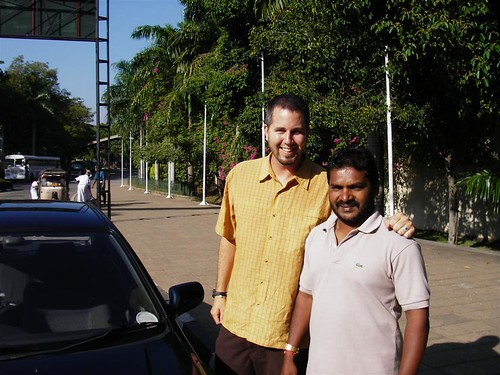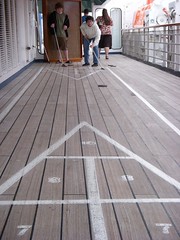I started entitling this blog post “don’t underestimate the power of your recommendation. Then I stopped myself. There are enough “don’ts” out there already!
I have barely read the blogs of dear friends and trusted colleagues over the past months. The toll of 76,950 miles of airplane travel (and countless trains and buses) last year really dug into both my blogging and my blog reading. I am having to clear all my blog reading subscriptions and start again from zero which I am doing today. I did that to all my “nice but not necessary to respond to emails and forum postings” on December 31st. I am also noticing that being home for a full month, exercising, doing yoga and eating right has restored my energy. I guess that means I’m ready for the overseas trip that starts tomorrow! Here I come, Roma!
But some stories beg to be passed along, and this one from Lee and Sachi LeFever at CommonCraft is one of those stories that makes the point of the importance of recognizing the power of both recommendation, story and reciprocity. Read for yourself.
 The Best Christmas Gift – From a Driver in Sri Lanka
The Best Christmas Gift – From a Driver in Sri Lanka
We became friends with Mervyn and had a wonderful time in Sri Lanka. We always felt safe and Mervyn was a perfect driver and guide – he gave us a local’s perspective and became our friend. He introduced us to Arrack, a favorite alcohol of locals. We told him that we would write about him on the Internet and hoped it would help his business. It was the least we could do.
Last night, on Christmas Eve, 4 years after deciding we would go on the trip, we received this email message from Mervyn:
DEAR SIR,
HOW ARE YOU? I AM FINE AND ALL OK WITH ME. I HAD GOOD BUSINESS FOR THIS YEAR. THAT IS BECAUSE OF YOU. THIS YEAR 90% FROM THE BUSINESS I GOT FROM YOUR WEB SITE THAT YOU RECOMAND ME. I SAY AGAIN AND AGAIN THANK YOU VERY MUCH.
I WISH MERRY CHRISTMAS AND A HAPPY NEW YEAR TO YOU AND YOUR WIFE.
MERVYN
This message made our Christmas extra special this year. Mervyn is honest, has a good heart, is very hard-working, and deserves to have a successful business. It’s inspiring to me, as a blogger, to think that a couple of blog posts can make such a big difference to someone like him on the other side of the world. Our post is the #3 result for “Driver Sri Lanka” on Google. I hope we can continue to help Mervyn’s business in 2009.
In the days of loose ties and swift creation and forgetting of connections, a small signal sent out in gratitude and appreciate can have unexpected results. Yes, our complaints may get those big businesses to improve their customer service if enough of us bitch and moan. But our little, individual generative acts, can have swift and powerful repercussions to people like Mervyn.
Who have you thanked or recommended today? How will that help them have a better financial year in tough times, or simply give them a little energy to get through the day?
I’m saying thanks to Lee and Sachi for blogging about Mervyn. And for Mervyn writing back to tell them what was the result of that blog post.

 In her PhD work, Lilia Efimova has been one of my teachers and thought partners, starting from the summer she spent with my family here in Seattle while doing a fellowship at Microsoft Research. In the post
In her PhD work, Lilia Efimova has been one of my teachers and thought partners, starting from the summer she spent with my family here in Seattle while doing a fellowship at Microsoft Research. In the post